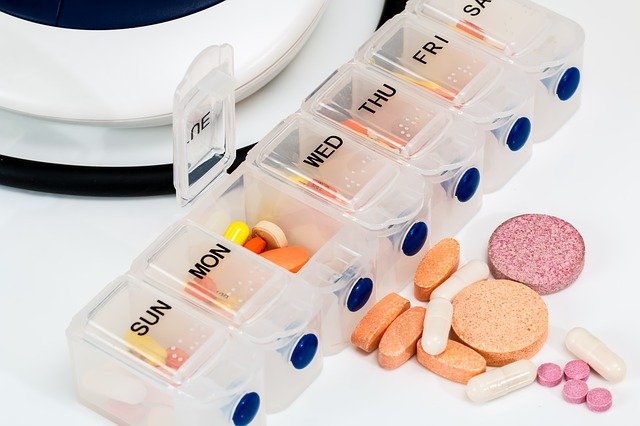Many individuals with diabetes also take prescription medications to address health conditions ranging from high blood pressure and depression to COPD. Even over-the-counter (OTC) medications have the potential to affect blood glucose levels – especially those containing alcohol. It’s just one of the reasons why those with diabetes need to tell their doctor what supplements, vitamins and other OTC they’re taking.
Antibiotics
Medications commonly prescribed for infections such as pneumonia and urinary tract infections can increase blood sugar levels. They’re a class of antibiotics called fluoroquinolones and some early research has postulated that people that take a significant number of antibiotics in their younger years may be more likely to develop diabetes. However, diabetes has often been found to be linked with viral infections for which antibiotics aren’t useful.
Antidepressants
Paxil, Abilify, Seroquel and Zoloft are just some of the antidepressants on the market that have been associated with increased risk of developing diabetes. They can also cause glucose levels to spike, sometimes dangerously so.
Birth Control
The estrogen present in birth control pills can lead to increased levels of glucose in the blood. Depending on the level of estrogen and the individual, oral contraceptives have the potential to increase glucose by up to 33 percent.
COPD
Prednisone, corticosteroids, and oral bronchodilators are used to address COPD, asthma and even rheumatoid arthritis, but they can also lead to increased glucose levels. Much will depend on the dosage and length of use. They stimulate glucose production and inhibit the body’s ability to utilize glucose leading to insulin resistance.
Heart and Blood Pressure
High blood pressure is often an underlying comorbidity of diabetes, but the same medications used to control blood pressure and heart disease can also affect glucose levels. Atenolol and metoprolol, along with those that treat high cholesterol such as atorvastatin, simvastatin and rosuvastatin can result in as much as a 12 percent increase in blood glucose.
HIV
Medications for HIV can increase blood glucose levels. It’s essential that individuals taking HIV medications be checked to ascertain whether they have diabetes prior to starting a regimen of drugs.
Hormone Replacement
Hormone replacement therapy (HRT) for women and diabetes is a tricky combination. Visceral fat that can occur during menopause is a risk factor for diabetes and heart disease. Medications to address those issues can increase glucose levels, while HRT has been closely associated with insulin resistance.
Nicotine
Whether individuals are actively smoking or trying to stop with patches, nicotine in any form can significantly increase glucose levels and make the disease harder to control. Nicotine impairs the body’s glucose tolerance.
If you would like to find out about earning cash for your unwanted, unused and boxed test strips, complete our online quote form today.
If you have extra, unopened and unused boxes of diabetic test strips – whether you have switched brands, no longer need to test or test less frequently, or have a loved one who has passed away – don’t let them gather dust until they’ve expired and end up in the trash. We’re the best place to sell diabetic test strips online, and if you want to sell your test strips, we’re here to make the process easy and enjoyable!
Visit us at Sell Your Test Strips and get your free quote today!

